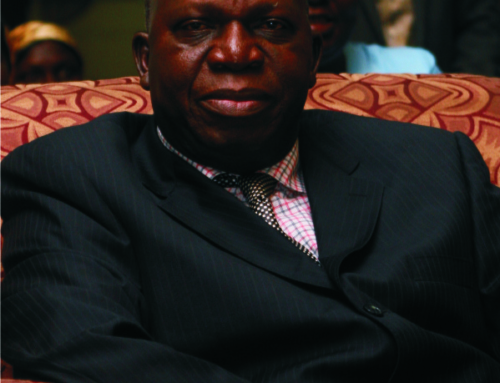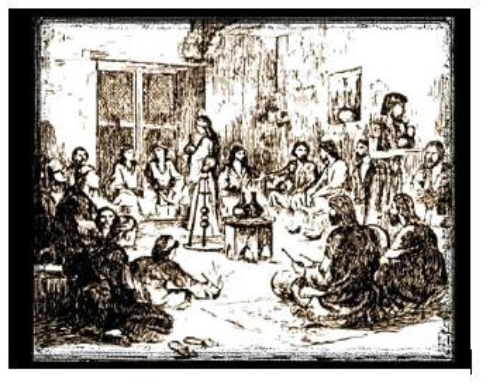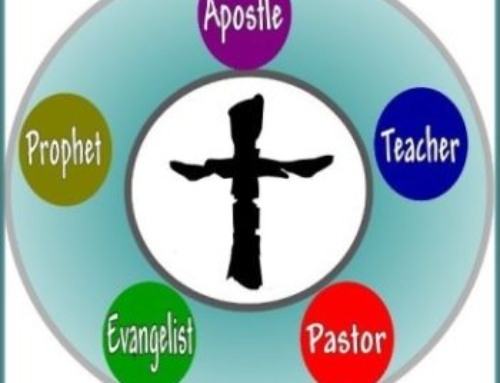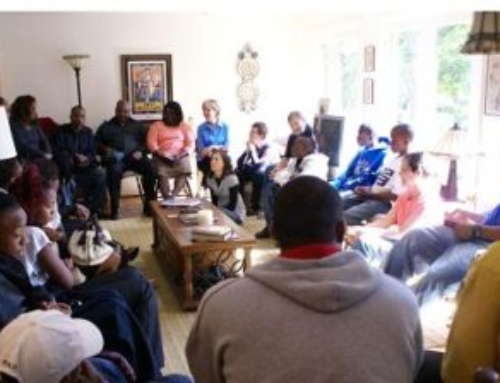If you have not read Part I, please do so here before proceeding further
In Part I of this article, we used three metaphors to describe the two types of meetings in the Body of Christ. Please take important note of them as they are quite important in our understanding. So what exactly are these two types of meetings? The first category of Assembly meetings describes those that are fully conducted by gifted men or apostolic workers. Examples of this would include the entire ministry that went forth in Solomon’s porch, Paul’s ministry in the School of Tyrannus (Acts 19:9-10); and in Troas (Acts 20:5-13) where Eutychus fell from the window and was raised up again. You will notice that those meetings were to lay the foundation for a newly planted local assembly (Acts 14:22-23). In these meetings, communication was very much one-way: from the apostles to the saints. They were teaching, exhorting, passing instructions, answering questions and establishing them in the faith.
This first type of meeting, which I likened to the special delicacy or the foundation stage where reinforced concrete is used, or the breastfeeding stage, is what 98% of Christendom is familiar with. It is this first type of meeting that has defined our Christian meetings today. This is often the high point, occupied by many highly charismatic and anointed men of God; it is a ready-made delicacy, complete with salivating spices of all types.
Do I have anything against this type of meeting? Heavens, no! They are indispensable for the overall building of the Body. I myself have the frequent opportunity to bring the word of God to the saints with this method. But again, according to the wisdom of the Master Builder of the Ekklesia, this kind of ministry is only foundational or occasional; and it should not even be seen at the surface. Certainly, it should not be the defining feature of the Ekklesia or her meetings. Once these meetings attempt to go beyond the foundation to raising the walls, they inadvertently transform the Assembly into a prison house! Is it not a strange paradox: we (the gifted men) will assume that we are really serving the Body; the saints will also be excited about the delicacies and good stuff they are being fed with but in actual reality, true spiritual growth has been forever denied; we thus have a situation of ever learning but never coming into the knowledge of the truth.
Perhaps, you consider this too harsh a statement and just my unsubstantiated opinion? Please take a look at the chart below:
“Tell me and I will forget. Teach me and I may remember. Involve me and I will learn.”
Nothing drives this truth home better than the chart above. The best of “lectures alone” produces a paltry 5% learning, whereas learning by doing and having the opportunity to share with others produce 75% and 90% respectively! My friends, this is not some mere speculation but the result of several years of painstaking research carried out by those in the field of education. No wonder that old saying, popularly attributed to Benjamin Franklin: “Tell me and I will forget; teach me and I may remember; involve me and I will learn.” Does this not prove correct what has been in the Bible all along but we are only just discovering? But in spite of this empirical evidence as well as scriptural confirmation, is it not amazing that most of us in our churches will still remain glued to the age-long tradition of “pulpit ministry”? We will come back to this later.
So, enter in the second type of meeting—though not explicit in the New Testament, it is there all the same, for those with a sincere heart to see. We’ll examine three different scriptures to prove this.
- Acts 2:42
And THEY continued steadfastly in the apostles’ doctrine and FELLOWSHIP, and in breaking of bread, and in prayers.”
Who are the “they” in that verse? Obviously, they are the 3,000 newly baptized converts. They continued in four things: making effort to implement what the apostles were teaching them; fellowshipping with one another; breaking of bread; and prayers. All these were actually happening in one, and this would be what the early church understood as fellowship or a typical church meeting! That word, fellowship, comes from the word, “Koinonia” which translates into several words including: participation, contribution, communication, distribution and communion. Not all these happened in Solomon’s porch. Breaking of bread didn’t happen in Solomon’s porch. It was purely a teaching ministry of the apostles. Fellowship and breaking of bread and exercising themselves in the apostles’ doctrine took place in the homes in the environment of everyday life.
So while the apostles were in charge in Solomon’s porch, who was in charge in the house meetings? Nobody and everybody! These were spontaneous and organic. These were simple brethren sharing among themselves what they were learning of Christ and how it was being made real in their life’s daily routine. Even when any of the apostles came into any of the homes, they didn’t just take over, they simply sat and watched the saints share their thoughts over what they were recently learning and express the joy and truth of Christ. I am sure they would be times the saints wanted to give the apostles the floor, but they would insist that the brethren should carry on; after all, they were only visiting. Oh yes, they would bring a few additions here and there as part of the organic fellowship and probably give summary words of encouragement and prayers. But ultimately, the meetings that held in the homes were in the hands of the saints.






